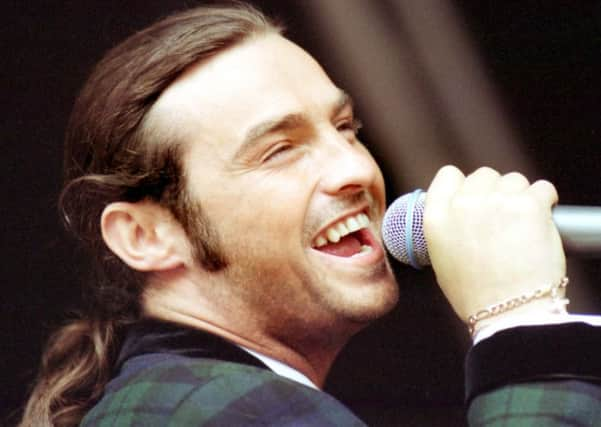Wet Wet Wet star says No 1 hit '˜sowed seeds' of their demise


But now Wet Wet Wet, who performed the marathon number one Love Is All Around, and Simple Minds, whose biggest hit was Don’t You (Forget About Me), have admitted that the success backfired, leaving them worse off than before.
In a documentary to be broadcast on the BBC, Wet Wet Wet drummer Tommy Cunningham says the band’s cover version of The Troggs’ song “sowed the seeds of destruction” and triggered their demise within three years.
Advertisement
Hide AdCunningham said of the song that featured in Four Weddings And A Funeral: “We recorded it in three days and thought it was a B-side, and the record company phoned us and went: ‘We think we should release this.’
“We found that the success was so overwhelming and so life-changing that it actually in a way sowed the seeds of Wet Wet Wet’s destruction.
“Marti’s fame increased and the band became the musicians behind him. That’s not a healthy place when you’re four guys standing in a line and one person starts getting ahead. It becomes a very difficult situation, especially when there’s that level of scrutiny and success. It took its toll. There’s a price to pay for worldwide, massive success.”
The backlash became so intense after the song had topped the UK charts for 15 weeks in 1994 that the band pulled it from record shops. Marti Pellow was later treated for drug and alcohol addiction.
For Simple Minds, the release of Don’t You (Forget About Me), which was used in the US film, The Breakfast Club, brought accusations of changing their sound for financial gain and left long-term fans of the Glasgow group “alienated”.
The documentary Rip It Up describes Simple Minds’ topping of the American charts for three weeks in 1985 as their “Elvis moment”, which was not welcomed by many fans who had supported the former punk band since the late 1970s.
Advertisement
Hide AdCreation Records founder Alan McGee, The Proclaimers star Charlie Reid, Mogwai guitarist Stuart Braithwaite and Del Amitri frontman Justin Currie all discuss their admiration of Simple Minds – who emerged at the height of the 1977 punk craze in Glasgow.
But by the time The Breakfast Club was released they had turned into an American rock band and ended up performing at the US leg of Live Aid before an audience of millions.
Advertisement
Hide AdRecalling the band’s rise to fame in the documentary, which will be shown on Tuesday, Simple Minds frontman Jim Kerr states: “We wanted to take it around the world, we wanted it to be international, we wanted it to be global.”
Braithwaite said: “I actually really like the early Simple Minds records. I didn’t know that they used to be an art rock band.
“I always just remembered them being a big stadium band. I thought of them being like the Scottish U2. There’s a lot more to them than that.
“People get very suspicious when you change your music for financial gain. A lot of people in the 1980s did that and I actually think that there was more derision than some of the music itself actually deserved.”
Broadcaster Stuart Cosgrove, said: “Breaking America is one of the Holy Grails of pop music.
“The idea of going out there and doing the American thing, appearing in big rock stadia, was slightly alien to the Scottish independent music scene. It kind of exaggerated a perception that Simple Minds had done something almost illegal.”